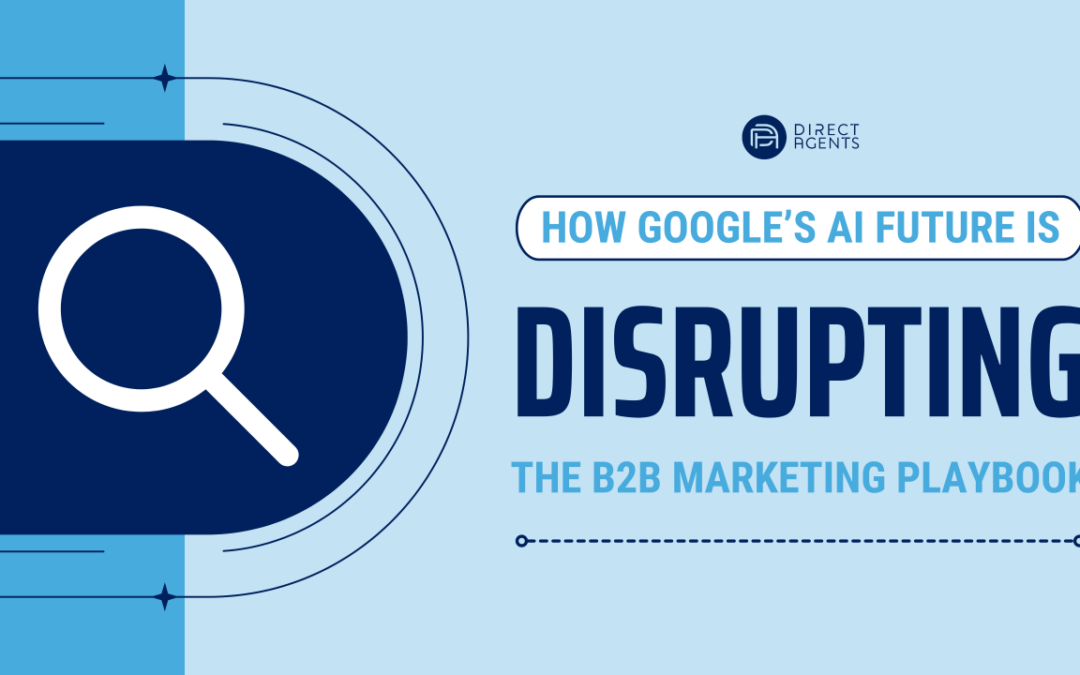As the rapid advancement of AI keeps us all on our toes, Google’s Search Generative Experience (SGE), looks like it might rewrite the playbook for B2B marketing. While I believe the impacts of most tech product releases are typically overstated, SGE is going to be transformative for B2B brands — and not necessarily in a good way. Why? Explaining complex B2B products can’t be squeezed into a brief SGE summary. We’re potentially looking at a fundamental shift in how complex products are pitched and discovered online. The question isn’t if B2B marketers need to pivot, but how quickly they can without missing a beat on today’s marketing goals.
The Current State
B2B marketers have always had a clear and simple mission: get potential clients to the website, where their products and solutions can be fully explained. I’m being reductive here, but only slightly. This was the SEO playbook according to Google — until now.
SGE is Google’s Biggest Change to Search in Years
With SGE, Google is flexing its AI muscles to compete with newcomers like PerplexityAI and OpenAI, aiming to serve up links and answers. Essentially, Google is eliminating the middleman and providing direct responses to queries with the efficiency of a well-oiled machine.
For B2B brands, whose often complex products demand depth and detail, SGE’s brevity could do more harm than good. There’s a real risk that the depth of B2B solutions will be lost in translation, distilled down to oversimplified snippets.
B2B marketers face a challenging situation. On one hand, they have traditional SEO strategies that draw traffic to their detailed websites. On the other, they face an AI-driven future where conciseness is key. This is how to maintain this delicate balance.
1. Decode the ‘Why’ Behind the Search
Understanding user intent is essential, not just a nice-to-have. With SGE, Google is not merely searching for keywords. It’s interpreting the context and specific needs behind each search. Your content needs to directly address these needs, providing answers to ‘what’ and ‘why’.
2. E-E-A-T
Experience, Expertise, Authority, and Trustworthiness (E-A-T) are vital components of your online strategy. In the era of Search Engine Optimization (SEO), these elements will make your content stand out and get featured. It’s time to strengthen your thought leadership and establish yourself as a dependable resource in your field for Google.
3. Diversify Online Presence
In a world where direct answers may reduce the need to click through, relying solely on SEO is risky. Diversify your approach — consider webinars, industry forums, and compelling LinkedIn posts. Aim to be omnipresent, not just on Google, but across all platforms where your audience frequents.
4. Optimize for Natural Language
Optimize for the way people talk, not just the way they type. Long-tail keywords and question-based queries are your ticket to staying relevant in a search landscape that’s getting more conversational by the minute.
Google’s SGE is more than just an update; it’s a wholesale change to how people search and find information. And in this new era, B2B marketers have a choice: adapt or get left behind. The trick is to remain indispensable in both the succinct world of SGE summaries and within your website and other owned properties.
Navigating this shift won’t be easy, but the sooner you start preparing, the better positioned your brand will be when SGE is fully rolled out. For help with optimizing your strategy, please contact [email protected] and speak with one of our experts.
Jackson Richards, VP of Strategy, Direct Agents

